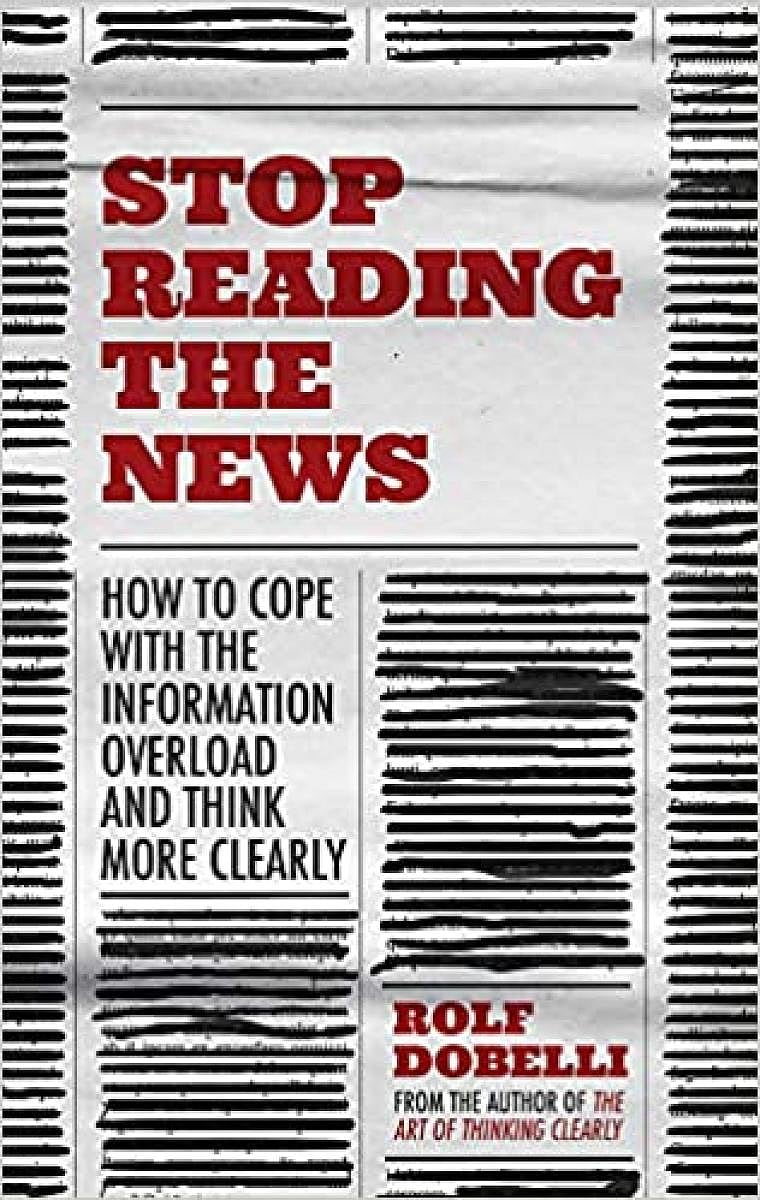
In the 1970s, little Rolf Dobelli devoured the news day in and day out in Switzerland. Back then, it was just the newspaper, radio, and television. Twenty years later, he tried to cram his never-ending appetite for the news with the internet, only in vain. How did a ‘news-junkie’ like him write a book like ‘Stop Reading The News’?
Answering that question in his book, he urges people to give up reading the news. When Dobelli understood that he was losing his peace because he has been chugging news all his life, it hit him that he was inside a rabbit hole that only took him deeper inside with every notification that popped up on his screen. His attention span was also weakening, making him unable to read longer content in one go. To climb out of that rabbit hole, he had to completely abstain from news, says Dobelli. It has been over a decade since he consumed news. He confirms he has never been this happy and productive.
Drawing from his own experiences, Dobelli offers reason after reason why people can be better off without news. While the book appears to be an emotional rant, as it generalises every news to be rubbish, some points indeed make sense.
Unhealthy practices
The book discusses that news merely scratches the surface of an incident. This could be because newspapers, television, and radio have lack of space and time to present an incident in its entirety. Aside from that, many media organisations are short on personnel and funds, making it hard to investigate every issue intensively. As a result, little snippets of news can pull the wool over the eyes of people, not letting them understand the situation in its complexity, claims the book, suggesting that people read well-researched books or long-form articles instead to gain more knowledge on a subject.
The ‘news’ Dobelli refers to is ‘breaking news’, which is defined as the news story of an event or incident as it is unfolding. To get all the details while it is still happening could be a long shot. However, some media organisations do report from the ground after in-depth research, even if they previously aired mere updates as ‘breaking news’.
The author is also right about certain unhealthy practices that media organisations follow, like giving more prominence to news that has conflict. Every journalist is taught that conflict is a key ‘news value’. Such news could have a negative impact. The book states that negative news could affect the human mind two times more than positive news owing to a psychological phenomenon called negativity bias.
Dobelli remarks that news is mostly negative, and he is not wrong. But, solutions journalism as a field is picking up where evidence-based solutions are proposed to problems in the society, and this could be integrated while reporting conflicts, to reduce the negativity. Also, sometimes conflict should be shown prominently to bring a policy change. For instance, the conflict between gay people and the policymakers in India over gay marriage must be highly reported on, so that there is a policy change to legalise gay marriage, as is the scenario in many developed countries of the world.
Rethink revenue models
Furthermore, many media organisations depend on advertisements for survival, notes the book. In other words, advertisements indirectly decide the content. Such media organisations are not independent, as they pander to the advertisers. To attract more advertisements, media platforms resort to producing clickbait content and sensational reportage, alleges the author, and again he is right.
It is high time media organisations rethink their revenue models and become subscription-based. Journalism is a service for the common people, and they must support quality journalism. ‘Stop Reading The News’ is not correct advice. The right advice would be ‘Identify which is good and bad journalism, and follow only the former.’
The need of the hour is media literacy, and not avoiding the news altogether. Common people need to be empowered to embrace media organisations that are doing public service, and boycott the ones that are running businesses for only profit.